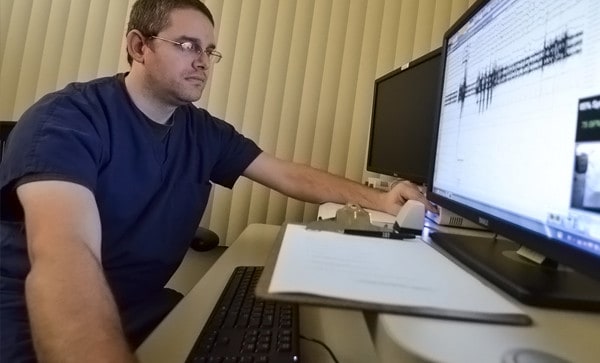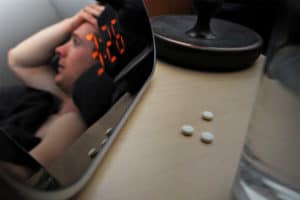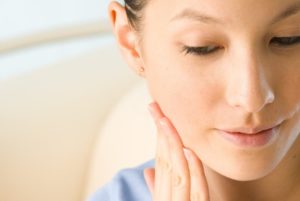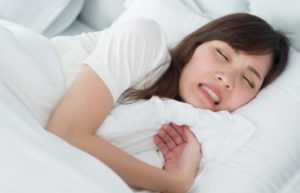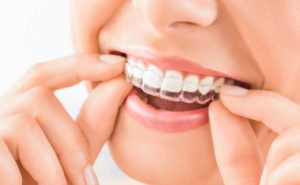Have you been experiencing some trouble with your sleep? Do you have sleep apnea or do you snore? These are some of the most common issues that are associated with a person’s sleeping habits and can point towards more serious conditions. In order to address these underlying conditions, a sleep study is recommended for these patients.
What is a Sleep Study?
Your brain and body does not stop working even while you are asleep. This is what a sleep study aims to discover. A doctor who is an expert with sleep analysis can study these symptoms in order to make a diagnosis. From that diagnosis, a treatment plan is recommended in order to fix the problems associated with one’s sleeping patterns.
If you have questions about sleep study, you are not alone. The need to conduct sleep study is not as widely known. But its benefits can be very profound as your sleep has a direct impact on your overall health condition.
A sleep study is designed to analyze the characteristics associated with every stage of your sleep cycle. From light to deep sleep, these characteristics can be indicators of possible health disorders or problems. It is usually performed in a lab (also known as a sleep clinic) during your normal sleeping hours. It is designed to monitor your normal sleeping behaviors.
Aside from knowing what happens during a sleep study, you might also be curious to know why it would be necessary. This type of test is usually recommended to anyone who suffers from excessive snoring, daytime sleepiness, insomnia, sudden onset of sleep, sleep apnea, or restless leg syndrome. Other conditions that might be addressed with a sleep study include rapid eye movement (REM), sleep walking, and sleep terrors (or nightmares).
Given that you now know what sleep study is for, you might be asking when to undergo one. If you have any difficulty getting to or staying asleep, then you need to undergo a sleep study. If you snore, or wake up tired in the morning, you also need sleep study.
Sleep Study Test Results
There are several types of information that are collected during a sleep study. This information is vital in order to assess the result of the examination and to determine the results. Below are some of the data collected during your sleep study:
- The brain activity is measured through the electrical currents from your brain during sleep.
- Any sensation of numbness or movements on your limbs is also taken note of.
- The patterns and depth of your breathing during sleep is also measured.
- The electrical activity, also known as heart rhythm, of your heart is measured during sleep.
- The amount of oxygen in your blood is noted during sleep study.
- The amount of acid that is secreted by your body during sleep is also important information.
- Your sleep latency (or the duration of time it takes for you to fall asleep) is vital in the results of your sleep study. The same goes with your sleep efficiency, or the ratio with which you fall asleep versus the time you spend in bed.
- The duration of your sleep is also monitored during a sleep study.
The results of a sleep study can be used to evaluate your condition. Among the common diagnosis during a sleep study include narcolepsy, sleep apnea, sleep-related movement disorders, and sleep seizure disorders.
Types of Sleep Studies
There are different types of sleep studies that are performed on patients with sleep disorders. Learn about what these different types of studies are so you know what to expect:
- Polysomnogram (PSG) – This is the most common type of sleep study that is conducted in a sleep clinic overnight. You will fall asleep as you normally do and sleep technicians will monitor vital data related to your sleep. You brain, muscle, and breathing activity will be monitored and data will be used for diagnosis later on.
- Multiple Sleep Latency Test (MSLT) – This type of sleep study is recommended for those with excessive daytime sleepiness, or those with narcolepsy. It is conducted throughout the day within a 10-hour period. You will have five scheduled naps during the day. It is designed to measure how long it takes for the patient to fall asleep, and to be woken up from sleep.
- CPAP Titration – This test is recommended for those who need help managing sleep-breathing disorders such as sleep apnea. Like PSG, this test is also done overnight in a sleep clinic. But the monitoring will be focused on the patient’s breathing activity. The patient will be asked to wear a nasal mask that is connected to a pressure generating device. It starts at low level pressure and will gradually develop throughout the sleep.
- Maintenance of Wakefulness Test – This sleep study works in an opposite manner as the others above as it tests the patient’s ability to stay awake through a series of periodic trials. It is done one full day in order to measure a patient’s ability to stay awake during the day. There are numerous trials scheduled two hours apart from each other.
It is important to note that only certified sleep doctors or who are experts in this field should evaluate and diagnose the results of the test. With their expertise, they can also recommend the right treatment plan to fix the problem. To find a licensed sleep doctor, you need to first look for reputable sleep clinics in your area.

